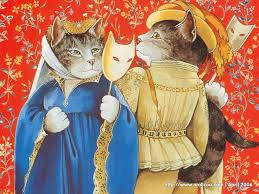 Fantasy and Sci-fi writers often point to world-building as their most important task in writing a fictional story. Writers and readers alike love the details, the imaginary places and the made-up rivalries. Yet if too much attention is placed on the world and not enough on the human aspects, even the best sword-clanging or laser-gun splitting stuff will not sustain your readers.
Fantasy and Sci-fi writers often point to world-building as their most important task in writing a fictional story. Writers and readers alike love the details, the imaginary places and the made-up rivalries. Yet if too much attention is placed on the world and not enough on the human aspects, even the best sword-clanging or laser-gun splitting stuff will not sustain your readers.
Writing Tip for Today: Let’s talk about the most important things readers of fantasy/sci-fi (or any genre) need.
Write it Real
No matter how imaginary your setting and characters, readers need to connect with their own very real human emotions. Think of these emotions (love, hate, joy, sorrow, anger, etc) as the Universal Translator for fantasy and sci-fi alike. In other words, trolls, witches, aliens and cyborgs/robots all need a set of human emotions to show readers how to care about your story. Remember, your readers are human, so be sure to give your characters human emotions. If a character like Data from Star Trek TNG or Spock from the original Star Trek is featured in your story, portray that character as struggling to relate to the emotions of others. I know, that’s emotion from a logical creature, but just as Spock wept and Data told jokes, the point must always be that your readers are humans. Stories must connect to readers in a satisfying emotional way.
Human Emotion Glue
These emotions hold your world together like glue. Let your wonderful details and setting be shot through with these all-too-human characters moving and acting and reacting. That is, avoid chunking like with like (all the details smooshed into a huge paragraph, then to the action). Instead, show your world through your characters’ eyes as they inhabit the world. By doing this, you integrate the world with the characters and with the readers’ emotional expectations. Blending, not chunking will help readers see the world you so carefully constructed in a holistic and more exciting way. While your Main Character is moving around, meeting obstacles, trying to overcome those obstacles, give just enough details to bring your world to life. You don’t have to tell readers everything at once.
Motivation Meets World
Just as you give your characters emotions and goals and obstacles, the story’s main motivations also help readers care. Many fictional stories rely on tried and true motivations: a lost place in the world, a world under siege, a lifestyle under siege, the need to belong, the need for love, loyalty, the need for events and institutions to be made right. All these and more provide a framework for your world to exist for readers. Readers can identify with a passion for honesty, loyalty, forgiveness, justice and love. Be sure to outfit your world with enough of these primary motives, along with human emotion. If you do, it won’t matter if your world is a medieval fantasy full of kings and queens or if it’s a space opera with aliens—because your readers are only human.





I’m not a Sci-Fi writer but if I were I can understand getting lost in the world I had created. The human element is vital. Because….well…..humans are reading your stuff. That’s where writer groups and beta readers come in. Most important though, the Sci-Fi writer must listen to them. Thanks, Linda.
Hey Bryan,
You are so right–all novels, not only fantasy/sci-fi, need to capture human emotion in all its depth and craziness and angst and joy. This is where the essence of human experience resides. Ignore at your peril! Thanks for your comment.
Keep writing,
Linda
Pingback: Writing Your Character's World - Linda S. Clare